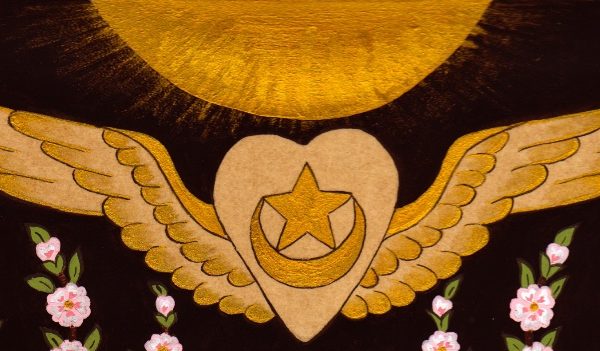05
2022The Zephyr February 2021

10 February 2021
Dear Companions on the Path,
Here in the United States, February is Black History Month. This annual observance presents Americans with an opportunity to reflect on the traditions, travails, and triumphs of the African American community. For our Sufi fellowship, it’s an opportunity to celebrate the African roots of our lineage, as well as to conscientiously examine the barriers of various kinds that have tended to prevent our African American siblings from fully joining the life and work of our movement, right down to the present day. Of course, examining our history and culture as it relates to Black people, Indigenous people, and people of color generally is not simply the task of a given month; it is an ongoing process of self-reflection (muhasaba).
With respect to our African roots, the importance of the early Egyptian shaykh Dhu’n-Nun (“He of the Fish”) Abu’l-Fayz Thawban Misri (d. 859) cannot be emphasized enough. A Nubian hailing from Ikhmim, or Panopolis, he became the leading Sufi of his time, and was the first to speak of gnosis (ma‘rifat), stations (maqamat), and states (ahwal). Significantly, he is remembered as an alchemist and a theurgist, and moreover a decipherer of hieroglyphs. Dhu’n-Nun’s pivotal role in the early transmission of Sufism goes far in substantiating Murshid’s intuition that Sufism’s ancient foundations lie in Khem, the realm of the black silt of the Nile.
It should be added that the vast majority of enslaved human beings forcibly transported to the Americas between the sixteen and nineteenth centuries came from West Africa, and approximately a quarter of them were of Muslim origin. The Islam of West Africa was, and remains, largely shaped by the culture of Sufism. Among the millions of enslaved souls brought against their will to Turtle Island, there must have been thousands of practicing Sufis.
Regarding the barriers to participation in our movement that exist for African Americans, as well as other communities, you may recall that we engaged in a series of soul-searching public conversations on this important question last the summer in the midst of the burgeoning crisis of conscience in the U.S. and abroad sparked by the killings of Ahmaud Arbery, Breonna Taylor, and George Floyd. It is greatly encouraging to see how this conversation has continued to unfold, kept alive by many in our community and focalized by a diverse and dynamic group working under the heading of “REJL”: Race, Equity, Justice and Love. A meaningful recent elaboration of the discussion took place when our esteemed friends Fatima Muid, Onaje Muid, and Rabia Povich led the North American Board, Seven Activity Vice Presidents, Astana staff, Young Adult Council, Abode Board and myself in a three-session exploration of the nature of belonging, and the existence of visible and invisible obstacles to belonging, as well as the means of removing them.
Our aim is not to become “color blind.” Differences are real, but instead of dividing us they can unite us. A body or system is strongest and most resilient when it is made up of many diverse elements, all interacting harmoniously and dynamically for the good of the whole. In a living system of this kind, special care is always directed to a part that has been injured, for its own sake and for the sake of the whole.
There is much yet to be realized, but we are on our way. Our mandate from Murshid is clear: “to bring about a better understanding between the divided sections of humanity by awakening consciousness to the fact that humanity is one family.” And the awakening of consciousness always begins, and continues, with ourselves.
Yours ever,
Pir Zia
Inayatiyya BIPOC Group
We have now started an international BIack, Indigenous, People of Color (BIPOC) group. The group will meet on Saturday 13th February at 1:00pm EST/7pm CET. During our time together we have an opportunity for members to seek, learn, share, heal and affirm connections to themselves and our community while recognizing the distinct history of BIPOC people and unlearning dominant narratives. If you would like more information please contact gulrukh@inayatiyya.org.
Please see our full Inayatiyya Digital Programs Calendar for more gatherings,
checking timeanddate.com for times in your region.
The Zephyr is a monthly newsletter of Inayatiyya, an interfaith mystical fellowship with branches worldwide. For more information on our activities, please visit inayatiyya.org.